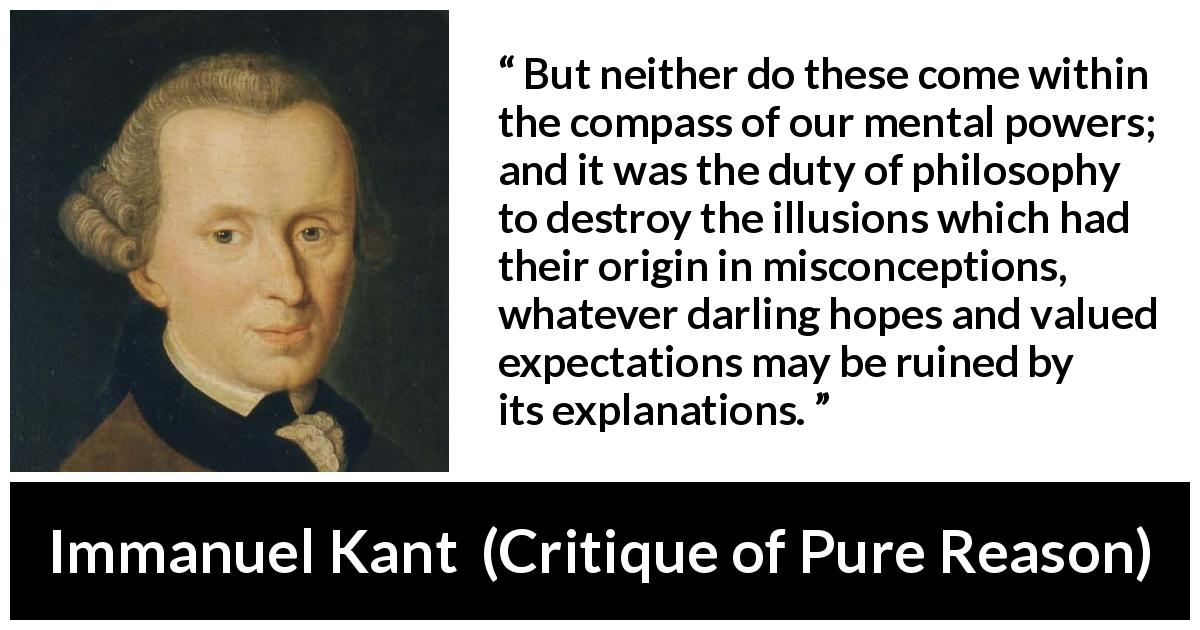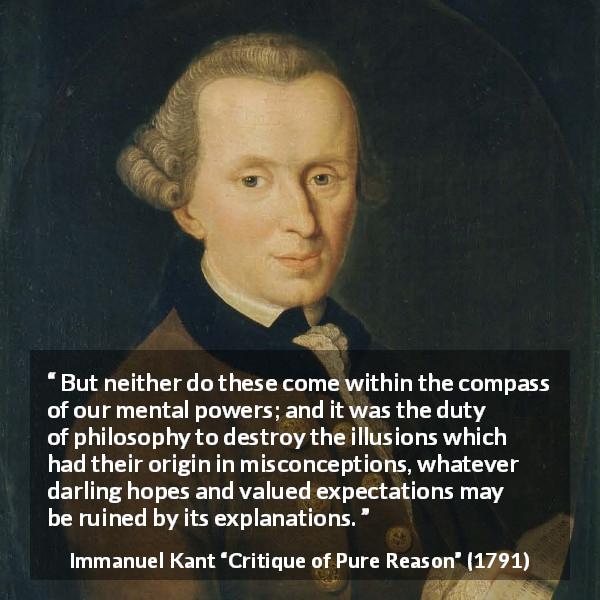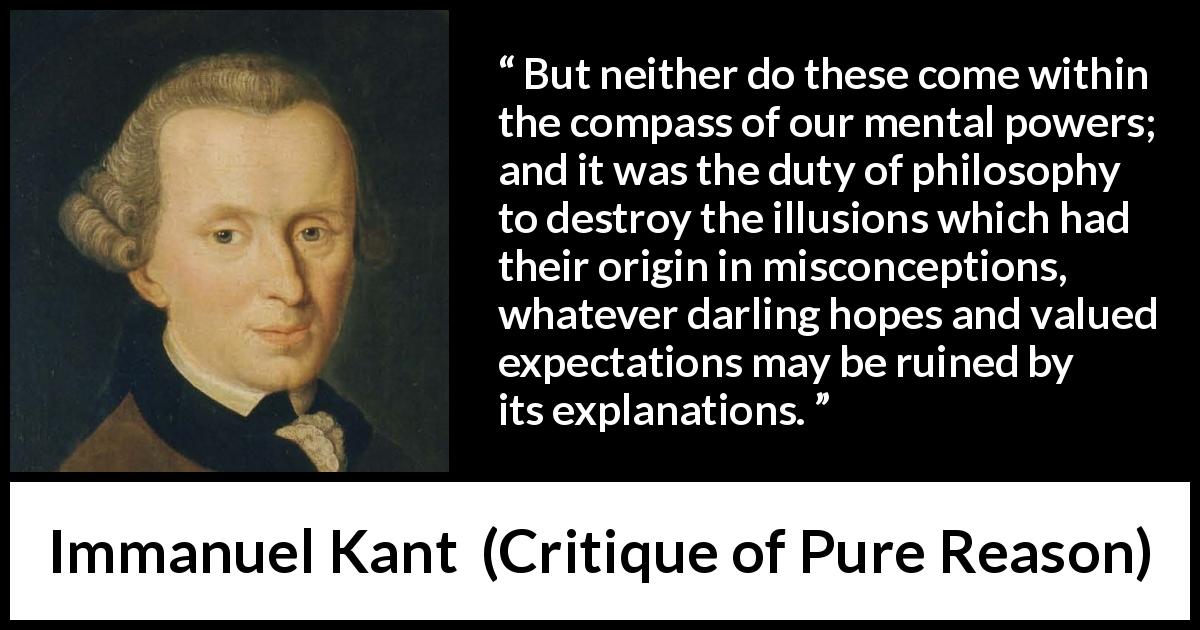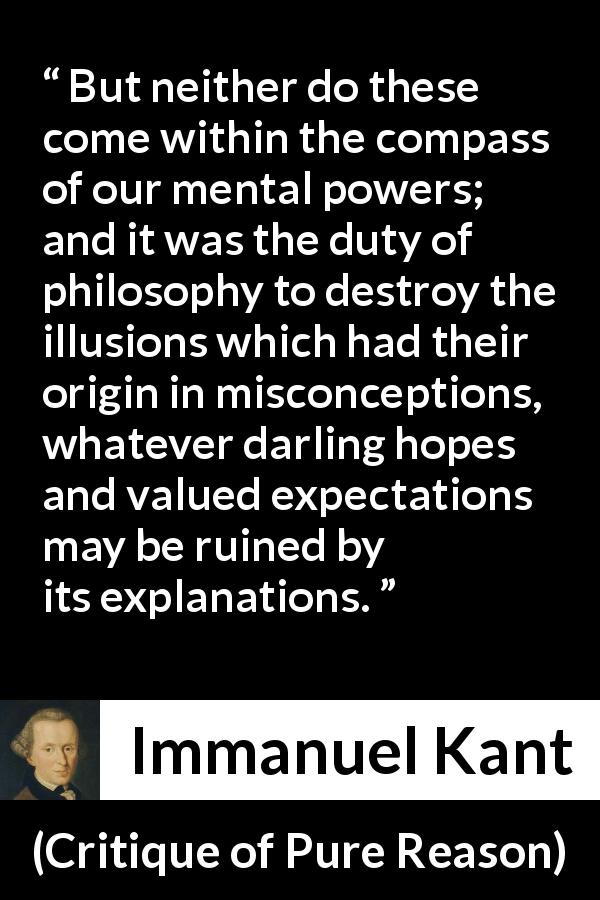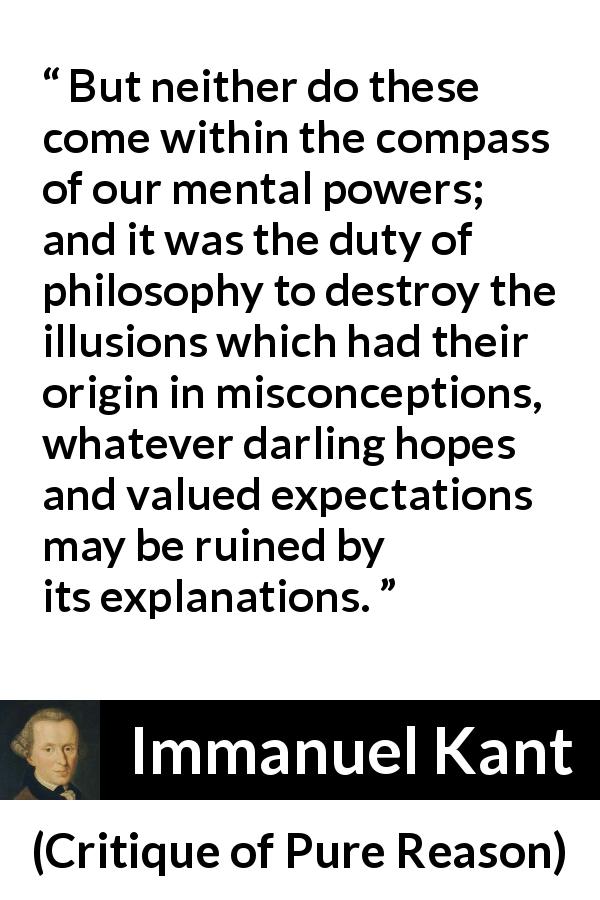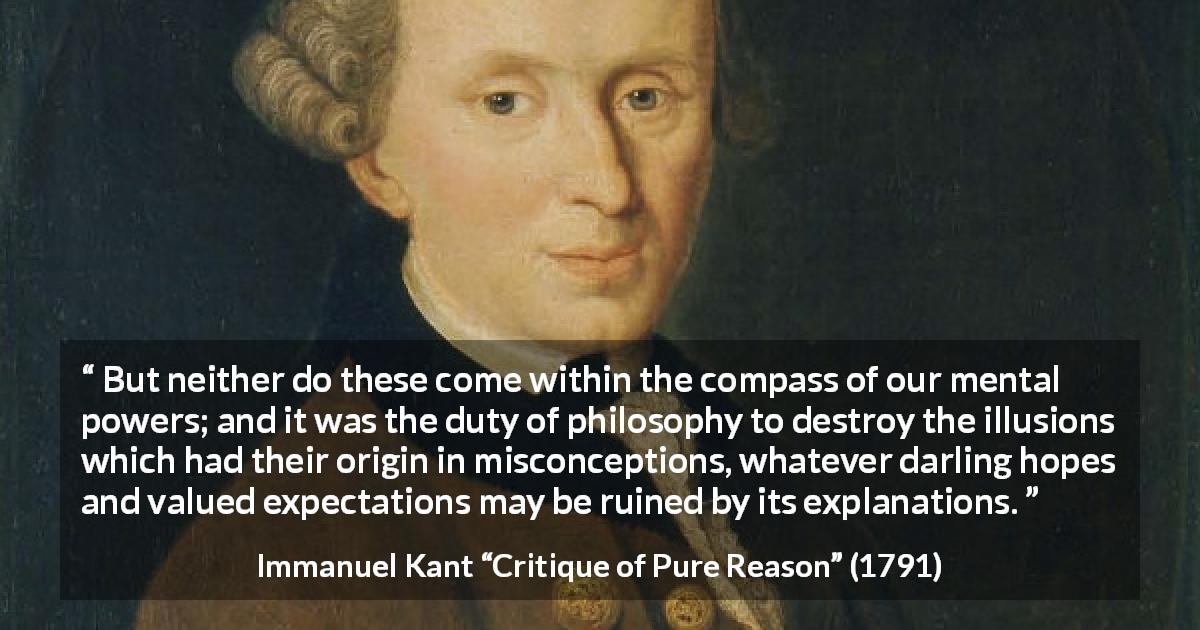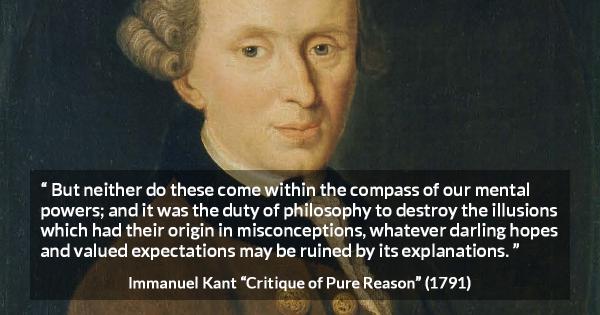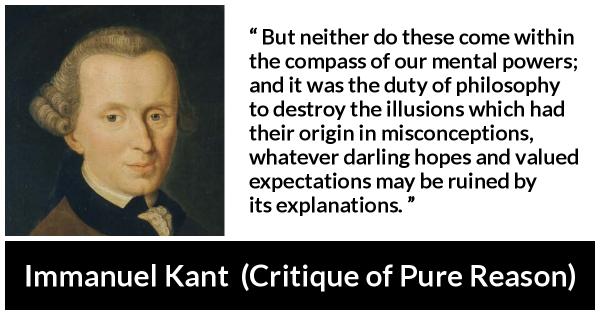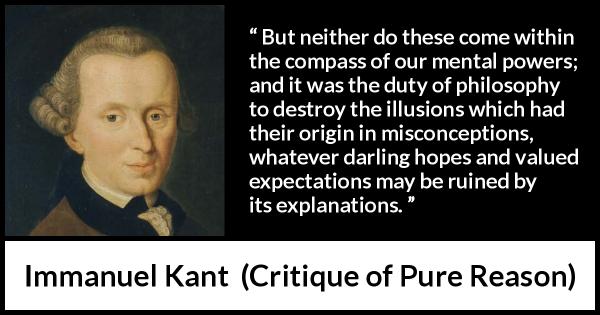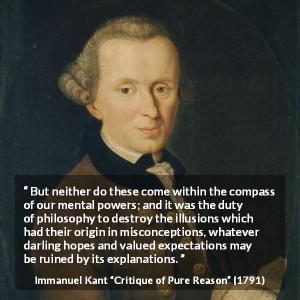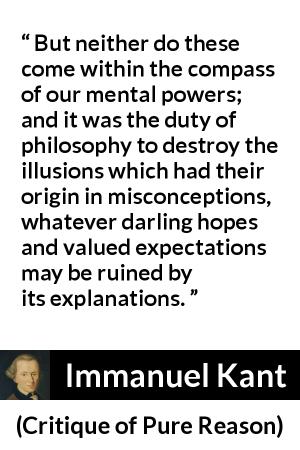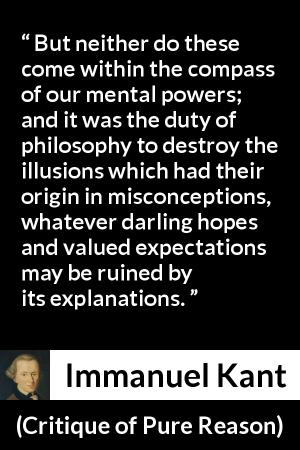“ But neither do these come within the compass of our mental powers; and it was the duty of philosophy to destroy the illusions which had their origin in misconceptions, whatever darling hopes and valued expectations may be ruined by its explanations. ”
Immanuel Kant, Critique of Pure Reason (1791). copy citation
| Author | Immanuel Kant |
|---|---|
| Source | Critique of Pure Reason |
| Topic | philosophy illusion explanation |
| Date | 1791 |
| Language | English |
| Reference | |
| Note | Translated by J. M. D. Meiklejohn |
| Weblink | http://www.gutenberg.org/files/4280/4280-h/4280-h.htm |
Context
“It is true, these questions have not been solved as dogmatism, in its vain fancies and desires, had expected; for it can only be satisfied by the exercise of magical arts, and of these I have no knowledge. But neither do these come within the compass of our mental powers; and it was the duty of philosophy to destroy the illusions which had their origin in misconceptions, whatever darling hopes and valued expectations may be ruined by its explanations. My chief aim in this work has been thoroughness; and I make bold to say that there is not a single metaphysical problem that does not find its solution, or at least the key to its solution, here. Pure reason is a perfect unity; and therefore, if the principle presented by it prove to be insufficient for the solution of even a single one of those questions to which the very nature of reason gives birth, we must reject it, as we could not be perfectly certain of its sufficiency in the case of the others.”
source
